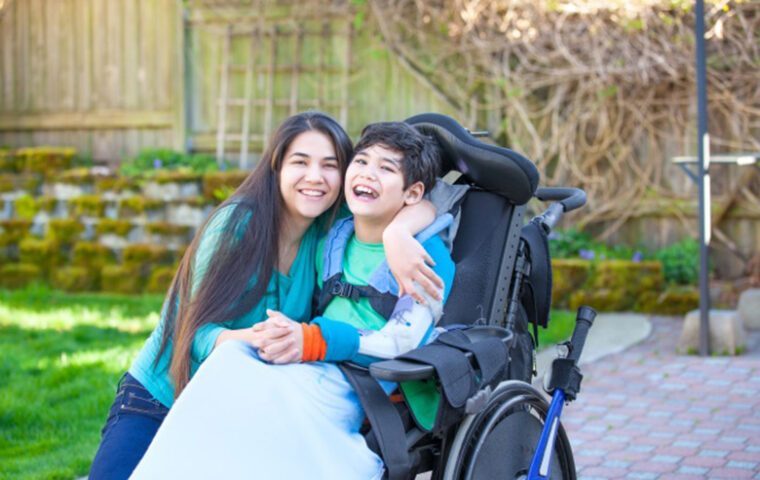Available across Victoria from July 2019, the National Disability Insurance Scheme (NDIS) is a new way of providing support to Australians with a disability under the age of 65.
Different from other supports such as the Disability Support Pension or Carer Allowance, the NDIS is not means tested, meaning it has no impact on any Centrelink financial supports. Rather than a “one-size-fits-all”, its support package is designed to tailor to individual needs instead.
The aim? To help people with disability access the supports they really need to achieve their goals, and to participate fully in community life.
So how does it do that, specifically?
How Does the NDIS Support Individuals with a Disability?
First of all, the NDIS identifies what disability supports a person really need in order to achieve their goals in life.
This can vary across individuals – some may want greater independence in that they want to do more things themselves, others yearn for higher involvement in the community.
In general, the NDIS supports aspects in the area of education, employment and health and wellbeing. This includes but is not limited to the following:

- Daily/domestic personal activities
- Transportation (to enable a person maintain healthy community, social and economic engagement)
- Therapeutic supports
- Home modification (e.g. wheelchair ramps, shower handrails etc.)
How it works is that the NDIA (National Disability Insurance Agency), which is the agency implementing the NDIS program, will first ask you about the things that you wish to achieve in life. They will then discuss with you (and your family) about the supports that will help you get there, and eventually come up with a funding plan that is tailored for you.
For example, your disability may be in the form of immobility. In this case, you may require assistance mainly in the form of transportation and probably just minor help around the house. NDIS will factor that into your plan and appropriate funding will be allocated in the form of home care assistance to you.
On the other hand, your condition may require you to have personalized nursing care 24/7, which is considerably more costly. This wouldn’t be a problem too if you are eligible, and will be included in your plan so that you can have access to such care.
NDIS Eligibility
Speaking of eligibility, in order to be qualify for the NDIS scheme, a person has to:

- have a permanent and significant disability that affects his/her ability to take part in everyday activities
- be under 65 years of age when s/he applies
- an Australian citizen, PR or a New Zealand citizen who holds a Protected Special Category Visa
- live in a NDIS area.
So yes, even if it is a psychosocial disability (significant and permanent functional impairments related to mental health issues), one will be able to access support through the NDIS. As long as it is a disability that is lifelong and significant, there shouldn’t be much problem in accessing the scheme.
Once you have your plan approved, all you have to do is bring it to a registered NDIS provider (visit: https://absolutecarehealth.com.au/government-funded-care/ndis/) to get the services and help you need. A good provider will be able to provide personalised services that mould to your exact needs and preferences, so as to help you achieve the goals outlined in your NDIS plan.
Be it short-term goals like increasing your daily living skills or longer-term ones like developing the physical ability to participate in community events, a good NDIS provider will be able to help you with that.
As you can see, the NDIS allows a person with disability to have direct control over the funding they receive. They will have more choice and control over how, when and where their supports are provided, rather than having money wasted on unnecessary things that do not help improve the quality of their life.

Most importantly, one can have the certainty and peace of mind that they will receive the support they need over their lifetime as there is no set funding levels for the NDIS. You can receive all the necessary funding for the support you need – as long as they are approved.
What Doesn’t the NDIS Cover?
Which brings us to, it is important to know that the NDIS does not simply cover just about everything a person with disability wants.
For firsts, you will not be eligible for the NDIS funding if you are over the age of 65 when you apply. Also, if it coincides with other supports provided by alternative funding channels, it will be rejected by the NDIS as well (to prevent double-dipping).
The following are some others items that are not included in a NDIS plan:
- Daily living expenditures i.e. groceries
- Income replacements
- Dangerous items that will cause harm
- Anything illegal
Basically, anything that is not related to your disability or is “unreasonable and unnecessary” will not be supported by the NDIS scheme. Apart from that, we’d say the NDIS is pretty flexible and will fund the majority of reasonable requests.
Conclusion

Overall, the NDIS is a useful scheme in addressing the real needs of individuals with a disability. It also focuses on early intervention where getting early supports can reduce the impact of disability on you or your child, so the level of help available is truly wide and varied.
If you are still unsure of how the NDIS works or if you require help in handling all the paperwork and application, a reputable NDIS provider that offers plan management services will be able to help you. Don’t worry, no extra cost will be charged or cut out from your NDIS plan so go ahead and see how you can best utilise the scheme to improve your life.
